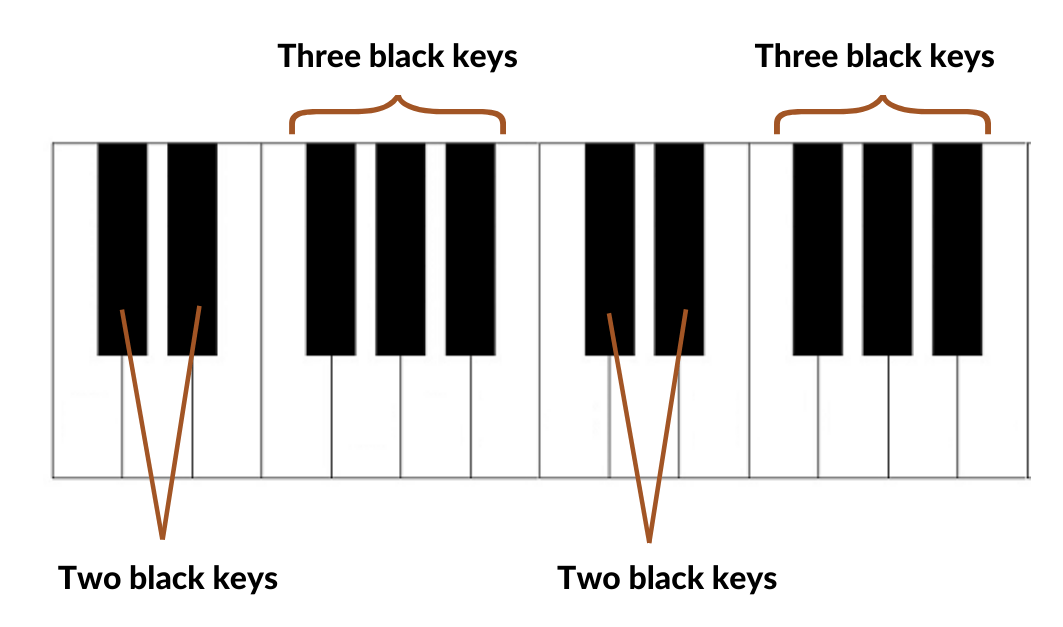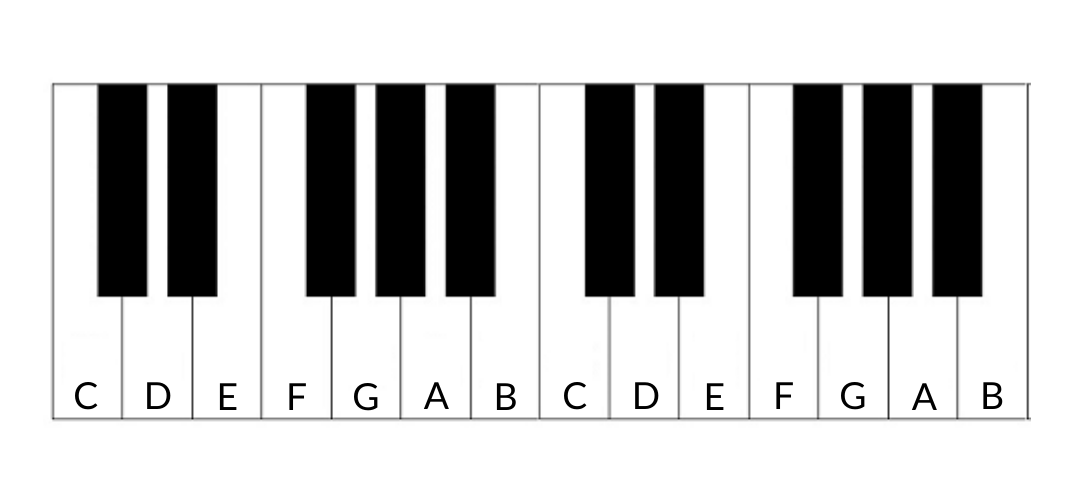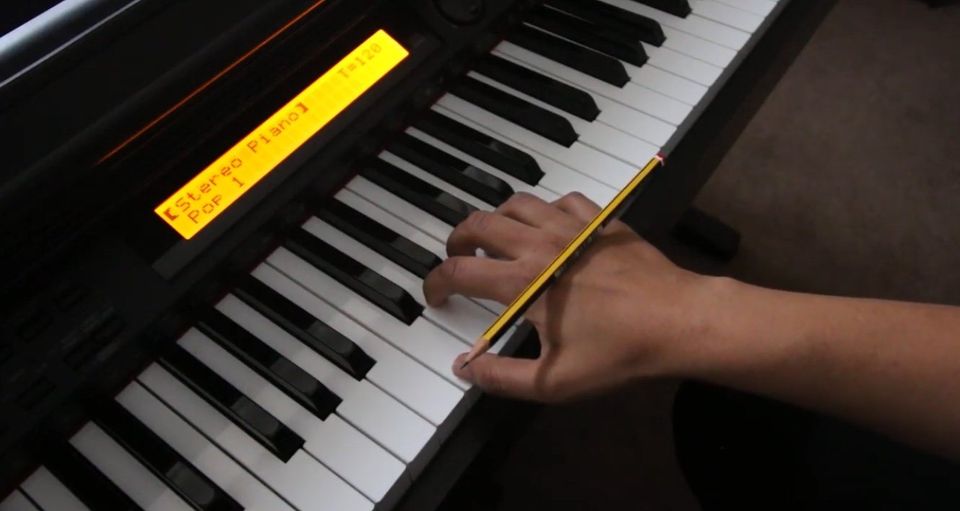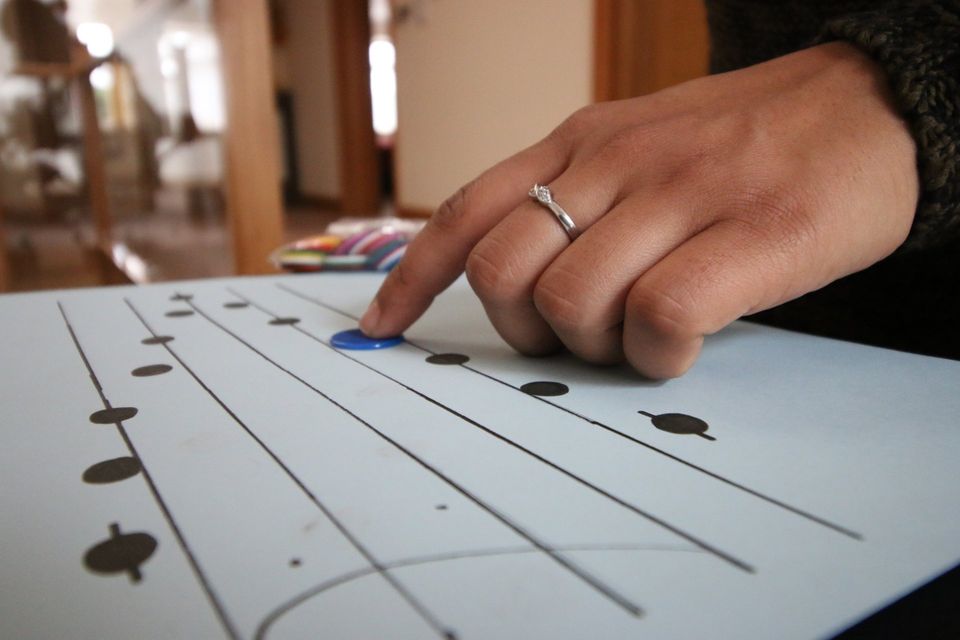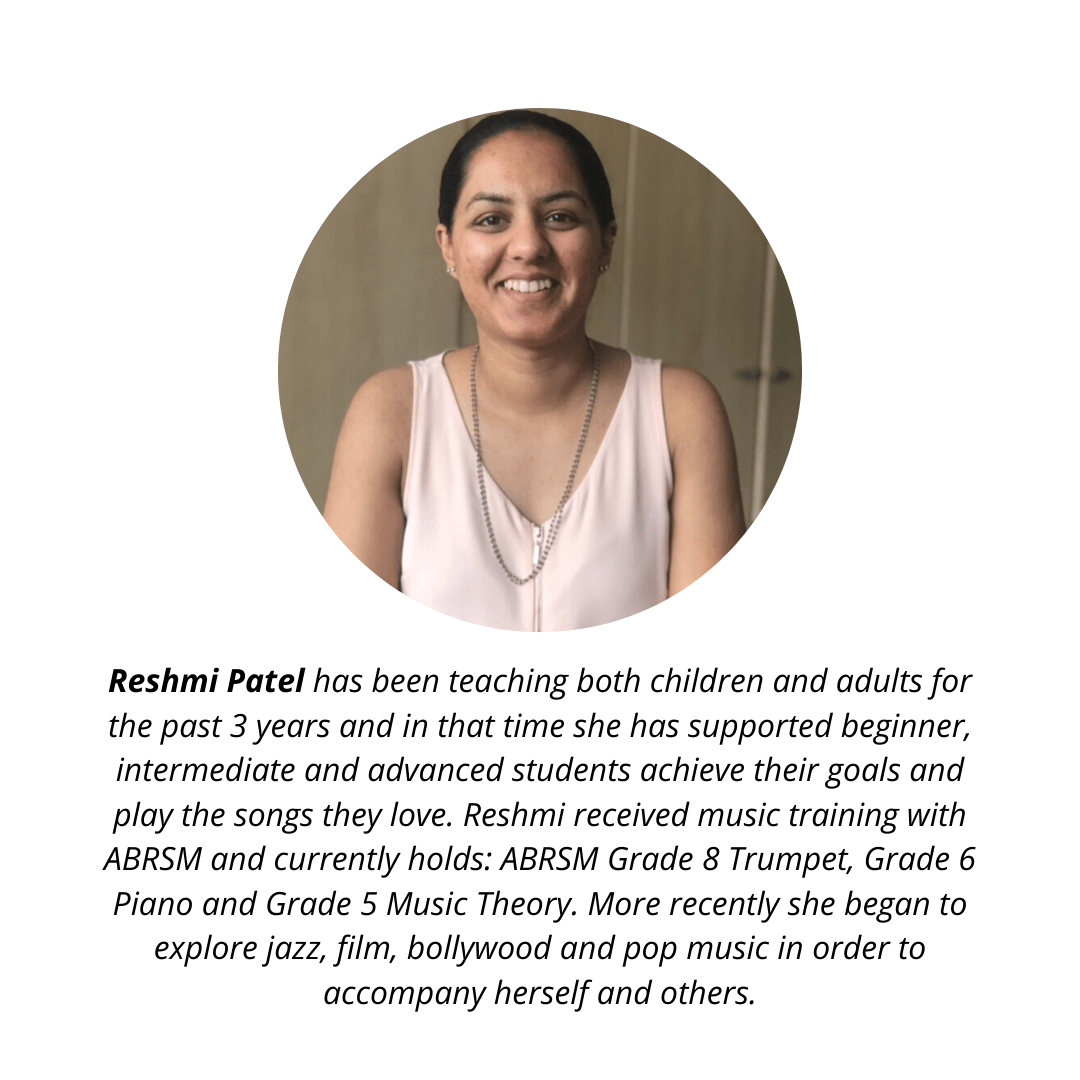Reshmi Patel • July 7, 2020
How We Can Support Students Who Learn the Piano
This is for all you beginners out there! There are certain things beginner piano players should practice to see results fast and avoid frustration (and quitting).
When you start learning the piano, it can be really hard to know WHAT you’re supposed to practice, especially if you don’t have a teacher to help you. This article will help guide you through 3 exercises you can start practicing RIGHT NOW to help you get comfortable at the keys and help your fingers connect to your brain.
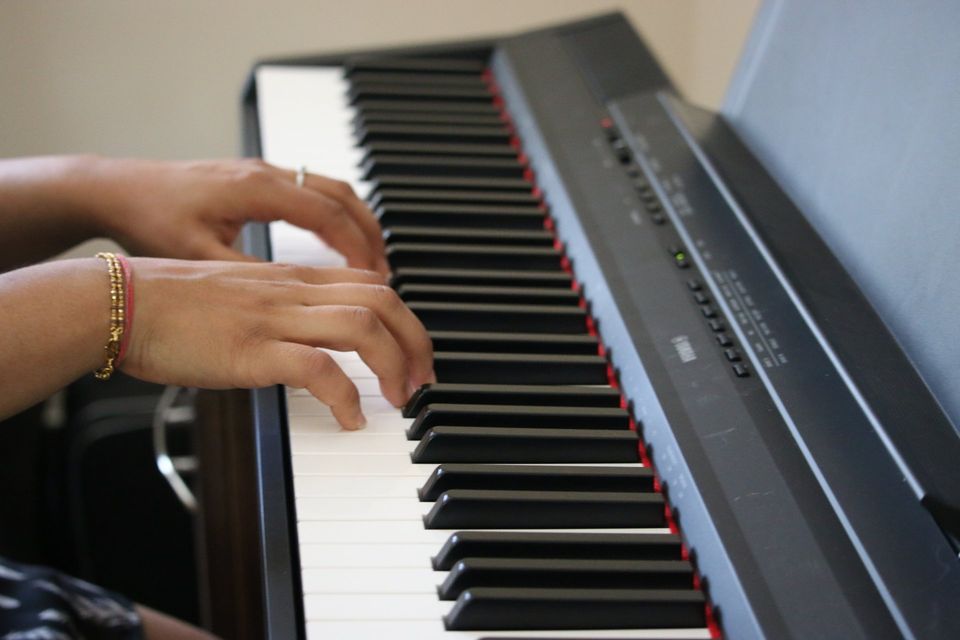
1. Keyboard Geography
When we first sit at the piano as a beginner it can sometimes be overwhelming. Whether you have a small keyboard or a full-size grand piano you are sitting in front of a load of black and white keys which quite frankly all look the same!
A few ways you can begin to familiarise yourself with the layout of the keyboard is by spotting patterns. For example: notice how the black key come in sets of two followed by a set of three.
Once you’ve done this you can then begin learning the letter names of the white keys. In traditional music we only use the letter names in the alphabet ranging from A – G. After this, we repeat this pattern as supposed to using the rest of the English alphabet.
This can be illustrated in the images below.
2. Try A Variety of Warm Up Exercises
One of our favourite exercises is called ‘Pencil Balance’.
If practiced regularly, this exercise will help you master your hand position when playing the piano.
Typically, when you’re playing the piano you want to keep the wrist and arm flat so that the weight from the shoulders and back can come straight down right through the tips of the fingers. To help keep your wrist in a good position, try to balance a pencil on your hand so that your wrist is in line with your knuckles. The reason we believe this is the perfect exercise for pianists, is because it doesn’t involve too many complications. If your wrist is slightly too high or drops too low, the pencil will not balance. Therefore, it’s easy to spot when your hand position is incorrect.
3. Recap Theory Material
Often, students can forget how important the theory elements are in music.
The reason learning the theory can improve our playing is because this teaches us why and where the music is written in a particular style. Therefore, we can spot patterns quicker when reading, writing and performing the music.
Today, we are fortunate enough to have many online and physical resources which can help boost our music theory knowledge and understanding.
Online Apps we’d recommend:
- Flowkey
- Music Tutor
- ABRSM Theory Works
- Metronome
- Notes Teacher
When it comes to physically learning the material, we’d recommend using posters or flashcards which you can have a flick through regularly to either read and/or test yourself. You can either make these yourself or use the ones we’ve created on our shop page.
Reminder: 'Practice is the repetition of an action with the goal of improvement and it helps us perform with more ease, speed and confidence.' – TED Talk on How to Practice Effectively
If you wish to know more about these warm up exercises and resources, feel free to take a look around our website or connect us directly.

“We’ve been doing lessons for a while… but how do I know if it’s actually working?” This is one of the most common and completely valid questions parents ask themselves, especially if they’re not musical. Progress in piano doesn’t always look or sound obvious in the early stages. Unlike some activities, results aren’t instant and that can feel worrying when you’re investing time, money, and emotional energy into your child’s learning. The reassuring news? Most healthy musical progress happens quietly before it becomes obvious. Here’s what to realistically expect over time and when not to worry. What Progress Often Looks Like around 3-6 Months(if they began as a beginner) At this stage, progress is mostly about settling in. You might notice: Your child feels more comfortable sitting at the piano They recognise lesson routines They’re starting to listen more carefully, even if notes aren’t perfect What’s normal here: Hesitation Needing reminders and support This isn’t slow progress, it's foundation-building. What Progress Often Looks Like at 7-12 Months This is when progress becomes clearer to most parents. You may notice: Greater independence Less hesitation when playing Improved posture and focus Pride in what they can play Not every child is ready for grades at this stage and that’s perfectly fine.Your child is learning how to learn and that skill takes time. Strong foundations now often lead to faster, more confident progress later. If you have any questions please feel free to reach out!

“They’ve had a long day… should we still push through practice?” Many parents feel torn between supporting consistency and respecting their child’s energy levels especially during busy school weeks. The truth is: Tiredness doesn’t mean lack of commitment. It often means your child’s brain needs a different approach. Here’s how to handle it without guilt or pressure. It’s reasonable to adjust expectations when: Your child is overwhelmed with school or clubs They’re emotionally exhausted Concentration is unusually low Short, calm practice is far more valuable than long, frustrated sessions. Sometimes: 5 focused minutes beats 20 stressed ones Listening to a piece counts as engagement Talking about the lesson reinforces learning How Teachers Adapt During Busy Periods Good teachers expect fluctuations in energy. During tiring phases, lessons may focus more on: Confidence and comfort Reinforcing known material Gentle technical reminders Enjoyment and connection to music This doesn’t slow progress, it protects it. How Parents Can Communicate This Proactively One of the most helpful things you can say is: “It’s been a heavy week. Please let us know what’s realistic to focus on.” This allows the teacher to: Adjust expectations Support your child emotionally Keep progress aligned without pressure You’re not letting anyone down you’re advocating. What Matters Most Long-Term Children who feel supported (not pushed) are more likely to: Stick with lessons Build confidence Develop a healthy relationship with learning Music is a long journey - not a sprint. A Gentle Reminder for Parents Rest, flexibility, and understanding are not signs you are supporting them. If you’re unsure how to balance tiredness with consistency, we’re always happy to help you find a rhythm that works for your family. If you have any questions please feel free to reach out!
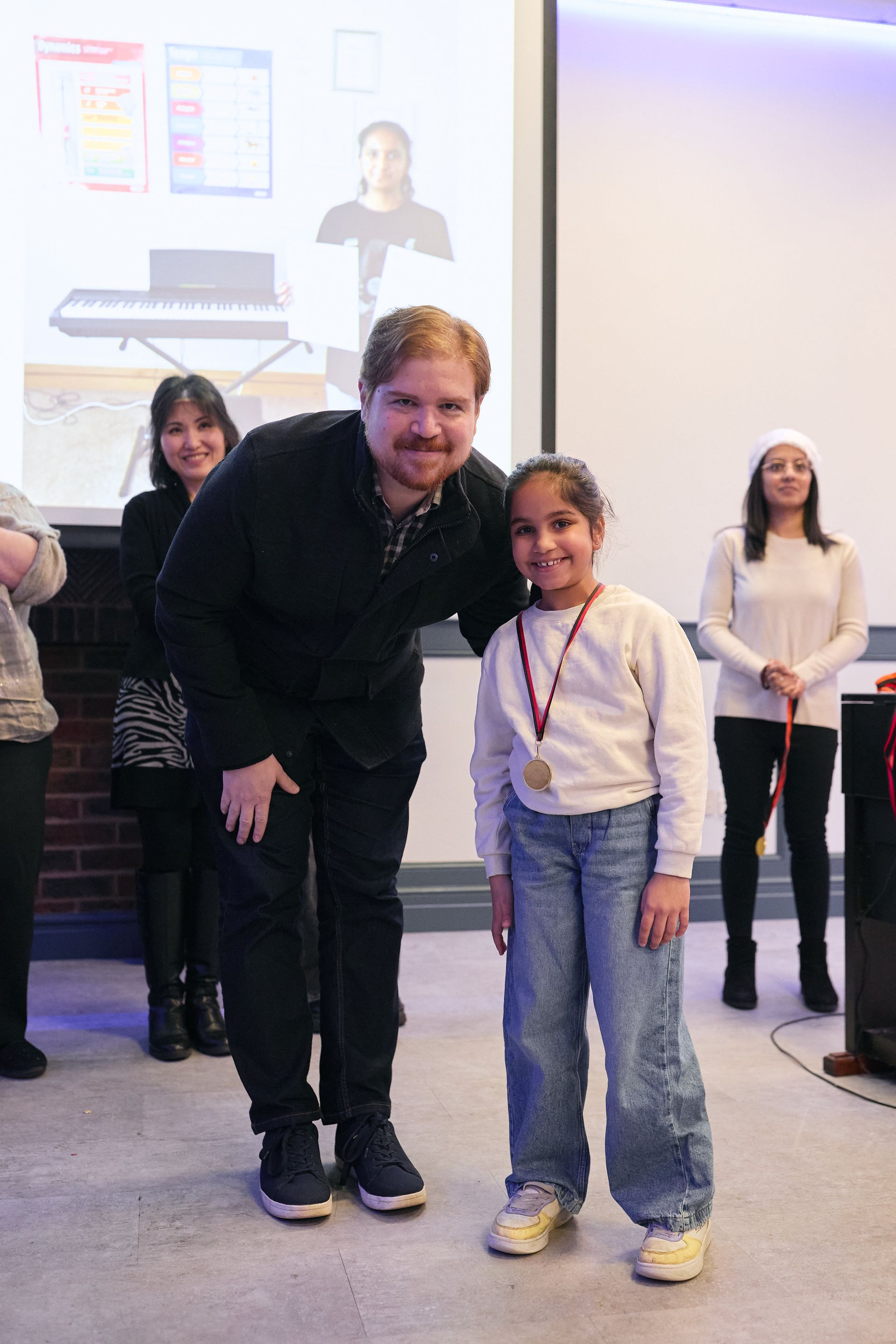
Many parents tell us the same thing: “I want to support my child’s piano learning but I’m not musical, so I don’t know what to look for.” The truth is, you don’t need to read music or play the piano to be a huge part of your child’s progress. What matters most is how you observe, encourage and communicate, not your musical knowledge. Here are three simple, practical ways to stay involved and confident. 1️. Sit In on Lessons (Even Occasionally) You don’t need to attend every lesson -just sitting in from time to time can make a big difference. When you observe a lesson, you begin to notice: How your child is guided to sit and place their hands How the teacher breaks tasks into small, achievable steps The language and cues your child responds to Sit in for 10-15 minutes once every few weeks. This is to absorb rather than to assess. This helps you support practice at home using the same language the teacher uses. 2. Record a “Before vs After” Video One of the clearest ways to see progress - especially for non-musical parents - is through short videos. How it works: Record your child playing a song or exercise Then record the same song or exercise 5–6 lessons later, or on the day the teacher says it’s “finished” You’re not looking for perfection. Instead, notice small but meaningful changes: Confidence: Do they sit more comfortably and start playing more willingly? Hand position: Do they find their starting position more quickly? Flow: Are there fewer pauses or gaps in the music? Even tiny improvements are signs of progress - especially at this stage of learning Keep the video private. This isn’t for comparison with others - it’s simply a reminder of how far your child has come. 3. Set Simple Checkpoint Goals With the Teacher Progress doesn’t always mean “moving up a level”. For younger learners, it often shows up in skills and habits. Setting small checkpoint goals helps you know what to look out for at home. Examples of helpful checkpoint goals: “Starting the piece without help” “Finding hand position independently” “Playing through without stopping” “Feeling confident playing for someone else” Ask the teacher: “What’s one thing we should notice improving over the next few lessons?” This gives you clarity and keeps expectations realistic. A Reassuring Note for Parents At ages 6–8, piano progress is often gradual and subtle and that’s exactly how it should be. Confidence, comfort at the keyboard, and smoother transitions are just as important as notes and rhythms. By observing, recording small milestones, and staying aligned with the teacher, you’re already playing a vital role in your child’s musical journey even if you’ve never played a note yourself. If you have any questions please feel free to reach out!

